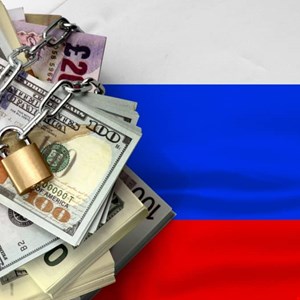- “문화 우선 접근이 성공의 비결” 에이버리 데니슨의 AI 혁신 전략
- “여러 AI 모델을 로컬에서 테스트 가능”···구글, 오픈소스 앱 ‘AI 엣지 갤러리’ 공개
- Why I recommend this OnePlus phone over the S25 Ultra - especially at this new low price
- I replaced my laptop with Microsoft's 12-inch Surface Pro for weeks - here's my buying advice now
- This palm recognition smart lock doubles as a video doorbell (and has no monthly fees)
UK’s NCA Disrupts Multibillion-Dollar Russian Money Launderers

UK investigators say they have sent a clear message that the country is “not a safe haven for money laundering,” after making scores of arrests and seizing millions from two major Russian criminal networks.
The National Crime Agency (NCA) yesterday revealed Operation Destabilise, a significant effort to unmask two previously unknown money laundering networks: Smart and TGR.
The two Russian-speaking networks are said to have laundered funds for transnational crime groups like the infamous Kinahan Cartel and helped Russian clients like the sanctioned Russia Today media company to bypass UK financial restrictions to invest money in the UK.
They also helped Russian cybercriminals including the Ryuk group to launder millions of dollars’ worth of ransoms paid by victims, according to the NCA.
Read more on money laundering: Money Laundering Dominates UK Fraud Cases
The core of the operation focused on unmasking a complex scheme whereby TGR and Smart collected funds in one country, often via physical cash transfers on the street, and then made the equivalent value available in another – usually in cryptocurrency.
“This provides a mutually beneficial service, streamlining the movement of cash generated by crime groups in the West, while simultaneously laundering crypto for cybercriminals, and helping Russian oligarchs and elites to bypass sanctions,” the NCA said.
Crime groups would then reinvest this crypto in their ‘business’ by buying more drugs and/or firearms, bypassing the banking system altogether.
The crime agency described the UK as a “key hub” for this activity, although both networks operated in 30 countries and often routed funds through the Middle East.
OFAC Sanctions Groups
The news was revealed at the same time as the US Treasury’s Office of Foreign Assets Control (OFAC) announced sanctions against the leaders of the two networks and four businesses linked to TGR.
The sanctioned individuals included Smart boss Ekaterina Zhdanova, alongside Khadzi-Murat Magomedov and Nikita Krasnov – two individuals with whom she worked closely to facilitate money laundering.
Also sanctioned were TGR boss George Rossi and his second in command Elena Chirkinyan, as well as Andrejs Bradens (aka Andrejs Carenoks) whose Thai-based Siam Expert Trading Company was also sanctioned by OFAC for exporting electronics to Russia.
Arrests and Jail Time
The NCA revealed several investigations that took place as part of Operation Destabilise, including:
- A cash courier network that carried out cash handovers in 55 different UK locations over a four-month period, on behalf of at least 22 suspected criminal groups. One courier in this network, Fawad Saiedi, was directed by Zhdanova and Krasnov to launder £15m ($19.1m) in criminal cash and is now serving a four-year sentence in prison
- An extensive cash courier network led by Semen Kuksov and Andrii Dzektsa, who coordinated with Krasnov to launder over £12m in the UK in a two-and-a-half month period, as well as managing similar operations across Europe. Kuksov and Dzektsa were sentenced to five years seven months and five years in prison respectively
In total, the NCA has already made 84 arrests and seized £20m in cash and crypto to date.
NCA director general of operations, Rob Jones, said the networks were previously unknown to international law enforcement or regulators.
“The NCA and partners have disrupted this criminal service at every level. We have identified and acted against the Russians pulling the strings at the very top, removing the air of legitimacy that enabled them to weave illicit funds into our economy,” he added.
“We also took out the key coordinators that enabled the cash-based element of their operation in the UK, making it extremely difficult for them to operate here and sending a clear message that this is not a safe haven for money laundering.”
Although the networks’ ringleaders are still at large and will continue their activity, the NCA claimed its operation has been extremely costly to Smart and TGR. It has calculated that they operate on very low profit margins of as little as 3% commission, meaning they would need to launder around £700m for free to pay back the £20m already seized.

